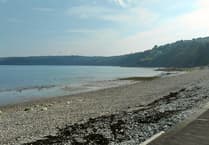Under the current regime of the Common Travel Area, citizens of the Republic of Ireland and the United Kingdom of Great Britain and Northern Ireland may freely reside in each others’ territories without the requirement or caveat of acquiring a work permit to work in each others’ states.
The Isle of Man, which is legally recognised a British Crown Dependency, despite being a member state of the common travel area, unfortunately still has the legal requirement for workers not classified as an ‘Isle of Man Worker’ to obtain a work permit, despite a prospective worker holding RoI or UK nationality.
The legislative clause which propagates this system of employment within this crown dependency is that within the Control of Employment Act 2014 of the Isle of Man Government, within section (6), Restrictions on employment, which stipulates under sub-section (a) that, “[A] person must not undertake, or become or be engaged in, any employment in the island unless he or she is an Isle of Man Worker.” (Requirements on how an individual may be classified as an ‘Isle of Man Worker’ may be found under section 4 of the same Act.)
This legislative clause is problematic for several reasons. Firstly, it disregards the potential talent which may be recruited from the RoI or UK, under the brand that one must be certified to be an ‘Isle of Man Worker,’ or obtain a valid work permit before commencing legal employment.
This requirement is not in place for Irish nationals wishing to take up employment in Great Britain, or vice versa, meaning currently it is far more attractive and plausible for such talent to prefer relocating to UK or RoI, as opposed to the Isle of Man, for employment.
Secondly, there are many current job postings listed on the job website of the Isle of Man Government, totalling over 1,000 vacancies.
This means that the current population resident in the Isle of Man, along with those who are classified as ‘Isle of Man Workers,’ cannot meet this labour shortage, which has now become an unfortunate understanding amongst employers and employees alike.
Though this may favour Manx employees at first glance, this inherently prevents very many, if not all, businesses in the Isle of Man from economically progressing, and potentially matching the level of qualitative sophistication seen within businesses of UK and RoI.
Finally, though the Isle of Man makes certain occupations ‘exempt’ from the work permit system, this is not entirely adequate.
Despite certain occupations, such as roles within medicine and education, being listed within this segment, this does not adequately address the consistent shortage(s) of workers in other fields, such as business and finance: a sector which the Isle of Man is very successful in.
This means that as opposed to recruiting workers from the British Isles, workers from other parts of the world are being recruited, including Africa and Asia.
This means that as a common travel area territory, common travel area members are not being favoured, but instead are being judged against workers of other countries, such as South Africa and/or India.
Additionally, workers originating from the Isle of Man may freely move, reside and work in the UK, however the vice versa of this is untrue. A worker originating from the UK may freely move and reside in the Isle of Man, but may not work here, unless a work permit has been granted.
This is a major factor which inherently undermines the Isle of Man Government’s strategy (‘Our Island, Our Future’) to increase the national population from c. 84,000 persons to c. 100,000 persons by the year of 2037.
Instead, what may be more plausible, is essentially overhauling or ‘revamping’ the work permit system entirely, such that Irish and
British nationals may freely reside in the territory which compromises of the Isle of Man, giving absolute efficacy to the common travel area agreement between all signatories.
Ultimately, the question posed is not one of what should definitely occur, but would may occur, as a rule and thumb of law.
As per the common travel area arrangement, inherently preventing all forms of immigration into the Isle of Man, including that of Irish and British citizens, by virtue of preventing them from engaging in legal employment, ensures that the Isle of Man does not progress at the same standard and pace with their British Isles counterparts.
This would only lead to drawbacks for the Isle of Man, but not for RoI or UK, in the long run.
Ammar Hammad Khan
Tromode Park
Douglas
This letter was first published in the Manx Independent of July 6.
Share your views with our readers.
Write to: Opinions, Isle of Man Examiner and Manx Independent, 18 Finch Road, Douglas, IM1 2PT or email:
Don’t forget to include your name, FULL home address and a daytime phone number even if you want to be anonymous in print.
Obviously, we need to be able to verify the identity of everyone whose letter we publish.
We don’t print phone numbers or full addresses and respect anonymity if the author requests it.




.png?width=209&height=140&crop=209:145,smart&quality=75)